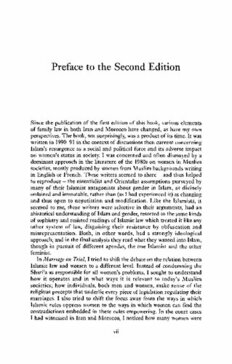
Marriage on Trial: Islamic Family Law in Iran and Morocco PDF
256 Pages·1993·20.954 MB·Chinese
Most books are stored in the elastic cloud where traffic is expensive. For this reason, we have a limit on daily download.
Preview Marriage on Trial: Islamic Family Law in Iran and Morocco
Description:
This book looks at how fiqh, Islamic family law, is interpreted and administered in two Muslim countries. It studies the complex relationship between the classical textbooks and modern codes of personal status law which in principle are based on them, but which in fact diverge from them both in substantive law and in methods of procedure and judgment. Based on extensive fieldwork in the courts and outside, it focuses on the dynamics of marriage and the consequences of its breakdown, as well as the way litigants manipulate the law in order to resolve marital difficulties. It illustrates the interaction between Islamic law and the social construction of marriage and divorce in Iran and Morocco, showing women can turn even the most patriarchal elements of Islamic law to their advantage and achieve their personal marital aims.
See more
The list of books you might like
Most books are stored in the elastic cloud where traffic is expensive. For this reason, we have a limit on daily download.
